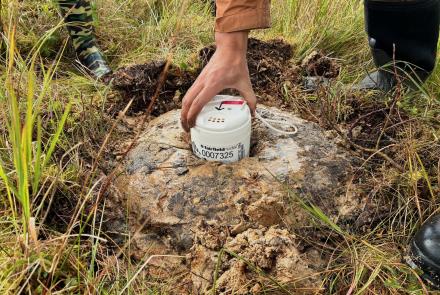The Greening of Japanese Technology
Working together, government and industry in Japan have selected a new direction for research. These folks brought us Toyota and Walkman and Nintendo; it's worth checking out what they're doing. And what they're doing now is investigating--and investing in--environmentally friendly technology.
At least that's the picture conveyed in a recent issue of the British Journal "Nature." Although the point isn't discussed, this turn to the green is unlike the greening of commerce in the United States, where, for example, some profits from Ben and Jerry's ice cream are donated to organizations trying to save the rain forests because Ben and Jerry believe a moral obligation exists to save the rain forests. They intend to do good. In Japan, the mighty Ministry of International Trade and Industry (MITI) is dedicating massive sums to such projects as biodegradable plastics development because ministry chiefs are betting that environmental repair and protection is where the next big action will be. They expect to do well.
Starting in 1987, MITI moved to establish two marine biotechnology laboratories that were to seek out new pharmaceuticals and anti-fouling agents from marine organisms. Both laboratories began operating last spring, and have added to their missions the search for natural oil-spill cleaning and super-efficient carbon-dioxide absorbing microorganisms.
It's accurate to say the ministry began the laboratories, but it quickly enlisted an array of supporters: 36 different entities, including corporations, banks, local governments, and government agencies at all levels, invested in or provided loans to the laboratories to get them started, and 24 companies with interest in the research (shipbuilders and chemical manufacturers, for example) are contributing about half the labs' operating costs during their first nine years.
This kind of team effort, combining all manner of public and private interests, also dominates MITI's program for its new Research Institute of Innovative Technology for the Earth (RITE). Local governments in and near Kansai Science City, where RITE will be located, are donating the land and contributing millions of yen toward its construction. Sixty major companies are chipping in--power companies, chemical concerns, insurance companies, internationally known firms like Hitachi and Nissan, and even the Wacoal Corporation, which is Japan's leading manufacturer of women's underwear.
A chief mission of RITE is carbon dioxide control. Scientists working there, like their colleagues at the marine laboratories, will try biological approaches to the problem. They'll also investigate chemical processes for absorbing CO2 and will be developing environmentally safe substitutes for the ozone-destroying but useful chlorofluorocarbons. Biodegradable plastics are also intended products of their research.
According to the "Nature" article, the director of the RITE laboratory (who is also president of the Science Council of Japan) is "pleasantly surprised" by the strength of industry commitment to basic research that is unlikely to bear profitable fruit for many years. The support does indeed seem strong, and isn't limited to the huge programs on MITI's agenda. Tokyo University of Agriculture and Technology, for example, also has industrial support for research on biological agents to absorb carbon dioxide.
With so much emphasis on carbon dioxide, it would seem the labs would duplicate efforts and waste resources; but they're not letting that happen. The top scientists engaged in this newly important effort all know one another and all sit on committees judging the research proposals. Rather than cutthroat competition, this leads to collaboration and a leaning toward studies that complement one another.
That cooperative attitude extends to international involvement; the U.S. National Science Foundation is a full funding partner with the Research and Development Corporation of Japan in a five-year project to develop genetically engineered organisms capable of cleaning up chemical spills.
It looks as if it may be possible both to serve the earth and make a profit. Japan apparently aims to lead an international economy in which doing good and doing well go hand in hand.




